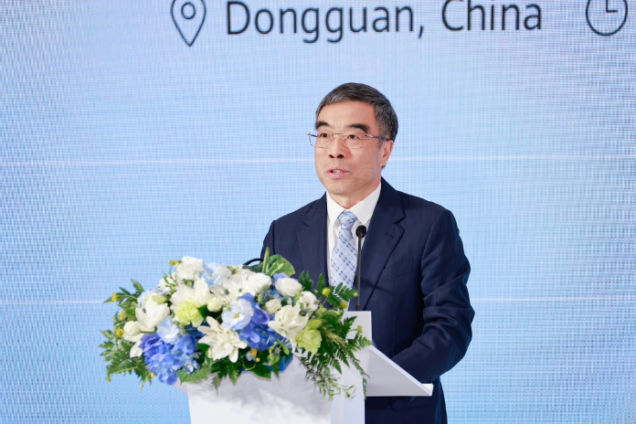The Chairman of the Board of Huawei has advocated universal access as he said that stable connectivity is not only a fundamental right for every individual but also a cornerstone of the digital economy.
Liang Hua speaking at the 3rd Huawei Sustainability Forum said, “Everyone should have access to stable connectivity.
"We see connectivity not just as a basic right for every person, but also as a cornerstone of the digital economy”.
The International Telecommunication Union (ITU) indicates that, by the end of September 2023, nearly 2.6 billion people, about 33% of the world's population, had never used the Internet.
Most of these people, the ITU indicated, are from developing countries or underserved rural communities.
In today’s rapidly evolving world, infrastructure plays a critical role in shaping the future of society.
While traditional infrastructure, including roads, bridges and power grids, has long been recognised as the backbone of economic growth and development, digital infrastructure is evolving to form the foundation of a sustainable and equitable society.
Digital infrastructure, particularly connectivity and computing power, has emerged as a crucial driver of socio-economic progress, as traditional infrastructure is not meeting the demands of societies in a world filled with technological advancements.
With the world grappling with the challenges of ensuring inclusive development, next-generation digital infrastructure is becoming as essential as its physical counterpart.
The Huawei Board Chair also underscored the centrality of connectivity in fostering a thriving society.
He emphasised its role in simplifying daily routines, strengthening economies, and promoting environmental sustainability.
Mr Liang indicated that “connectivity is playing an important role in every aspect of our lives. It makes our lives easier, our economies stronger, and our environment greener.”
Moreover, he stressed the importance of a potent computing infrastructure to accelerate digital and intelligent transformation across industries.
“We need to build a stronger computing infrastructure to speed up digital and intelligent transformation across industries and integrate the development of the digital and real economies”, he said.
As the world moves towards the future, investing in next-generation infrastructure is no longer a choice, but a necessity.
Prioritising the development of a reinforced network infrastructure and strengthened computing capabilities will lay the foundation for a more sustainable, equitable, and prosperous future for all.
Latest Stories
-
I am not ready to sign any artiste to my record label – Kuami Eugene
5 mins -
Gov’t spokesperson on governance & security calls for probe into ballot paper errors
8 mins -
Free dialysis treatment to be available in 40 facilities from December 1 – NHIA CEO
22 mins -
NHIA will need GHC57 million annually to fund free dialysis treatment – NHIA CEO
28 mins -
MELPWU signs first-ever Collective Agreement with government
53 mins -
I’ve not been evicted from my home – Tema Central MP refutes ‘unfounded’ reports
55 mins -
After Free SHS, what next? – Alan quizzes and pledges review to empower graduates
1 hour -
Wontumi FM’s Oheneba Asiedu granted bail
2 hours -
Alan promises to amend the Constitution to limit presidential powers
2 hours -
Ghana to face liquidity pressures in 2025, 2026 despite restructuring most of its debt – Fitch
2 hours -
NPP’s record of delivering on promises is unmatched – Bawumia
2 hours -
Mahama: It’s time to dismiss the incompetent NPP government
2 hours -
‘It’s extremely embarrassing’ – Ernest Thompson on Ghana’s AFCON failure
2 hours -
Today’s front pages: Monday, November 25, 2024
2 hours -
T-bill auction: Government misses target again; interest rates continue to rise
2 hours

